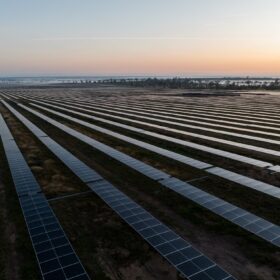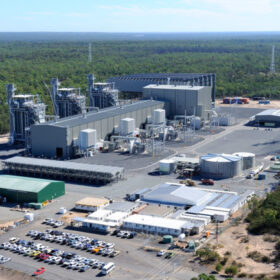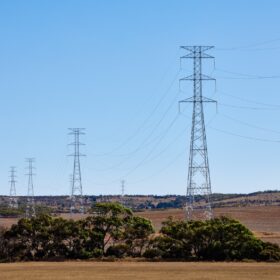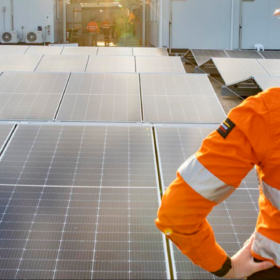The clean energy investment pipeline in Western Australia (WA) is in the vicinity of $200 billion, and projections show the clean energy sector is expected to generate around 350,000 jobs from 2025 to 2050.
Increasing the number of apprentices, particularly in trades such as electricians, engineers, motor mechanics, plumbers, air conditioning and refrigeration mechanics, metal fitters and machinists will be vital to ensure we have the skills needed for WA to reach its target of net zero by 2050.
Because of the size, scale and diversity of projects being developed right across WA, across solar, wind, hydrogen and batteries, the proposed Centre of Excellence would consist of a network of WA TAFEs.
The proposal, to be negotiated with the Commonwealth, will lead development of training and workforce initiatives in collaboration with industry, unions, TAFE, universities, and key training stakeholders. It will also support more Western Australians, including Aboriginal students and women, into clean energy jobs.
“We want Western Australia to be a global renewable energy powerhouse, and are working to position this State at the forefront of Australia’s clean energy future,” Premier Roger Cook said.
“Investment in clean energy plays to WA’s economic strengths, skills profile, training capability and natural assets.”
“Our proposed TAFE Clean Energy National Centre of Excellence initiative is an excellent opportunity to use the entire network of WA TAFE colleges to deliver the advanced skills base needed for the State’s energy transition.”
“We will collaborate with other states and territories, the Commonwealth and industry stakeholders to join up with other nationally networked Centres of Excellence to grow Australia’s clean energy skills and workforce capability.”
The state government has also submitted an application to access part of the Commonwealth’s $31.6 million in turbocharging funding to fast-track development of clean energy training and workforce initiatives.
WA’s proposal for a Clean Energy National Centre of Excellence will leverage off a $2.8 billion package announced in the State Budget for new wind, solar and storage capacity to upgrade the grid to power opportunities in green hydrogen, critical minerals and other green industries.
The historic five-year National Skills Agreement, which commenced in January this year, is a $1.34 billion investment between the Albanese and Cook governments to expand and transform access to WA’s vocational education and training (VET) sector, support quality training and implement reforms to address critical skills needs in WA.






By submitting this form you agree to pv magazine using your data for the purposes of publishing your comment.
Your personal data will only be disclosed or otherwise transmitted to third parties for the purposes of spam filtering or if this is necessary for technical maintenance of the website. Any other transfer to third parties will not take place unless this is justified on the basis of applicable data protection regulations or if pv magazine is legally obliged to do so.
You may revoke this consent at any time with effect for the future, in which case your personal data will be deleted immediately. Otherwise, your data will be deleted if pv magazine has processed your request or the purpose of data storage is fulfilled.
Further information on data privacy can be found in our Data Protection Policy.